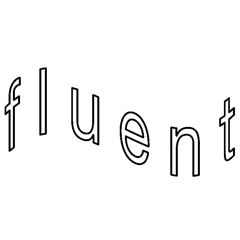Forms of navigation: Cabotage
PAULINO VIOTA: CONTACTOS. MAYO DE 1970
by
Screening of Contactos. Mayo de 1970 (1970) by Paulino Viota, followed by a discussion with the filmmaker. This session will be held at Azkuna Zentroa and is part of the collaborative project Forms of Navegation: Cabotage, fluent / Bulegoa z/b.
PAULINO VIOTA: CONTACTOS. MAYO DE 1970
The title of the film (Contacts. May 1970) functions polysemically, alluding to the photographic process, the figure of the political militant, the contact section in newspapers, and a composition by Karlheinz Stockhausen. The film can be considered to belong to the “dissident cinema” made in Spain in the late sixties and early seventies. It shares this movement’s type of funding, on the margins of the film industry, with meagre budgets; the impossibility of commercial distribution because of its illegal nature; and its political and aesthetic radicality, influenced by the new European film movements, particularly French Nouvelle Vague and the so-called Rive Gauche. Viota himself acknowledges the films of Jean-Marie Straub and Danièle Huillet, and the work and writings of Jorge Oteiza, as fundamental references. The film shows the failure of its main characters in their attempts to reconcile their political activism with everyday life, which is conditioned by the harshness of their socio-economic reality. Contactos is considered a landmark in its critique of a certain kind of militancy, as well as its profound formal renewal through the interpreting of spaces and the positions of the characters as part of a brand new narrative in Spanish cinema.
Free admission with prior registration until capacity is reached.
Paulino Viota (Santander, 1948). Filmmaker. Maker of Contactos. Mayo de 1970 (1970, restored by the Filmoteca Española in 2010, part of the collection of Museo Nacional Centro de Arte Reina Sofía), Duración (1970, part of the collection of Museo Nacional Centro de Arte Reina Sofía), Con uñas y dientes (1977-78) and Cuerpo a cuerpo (1982). His complete works, including several short films from 1966-1974, have been published by Intermedio DVD. Since the early eighties Viota has been studying and teaching cinema. He has been a lecturer at Universitat Pompeu Fabra de Barcelona; CECC-Centre d’Estudis Cinematogràfics de Catalunya; Bande à part Escuela de cine (Barcelona) and Filmoteca de Cantabria, and has given talks at the main cultural and film institutions in Spain.




